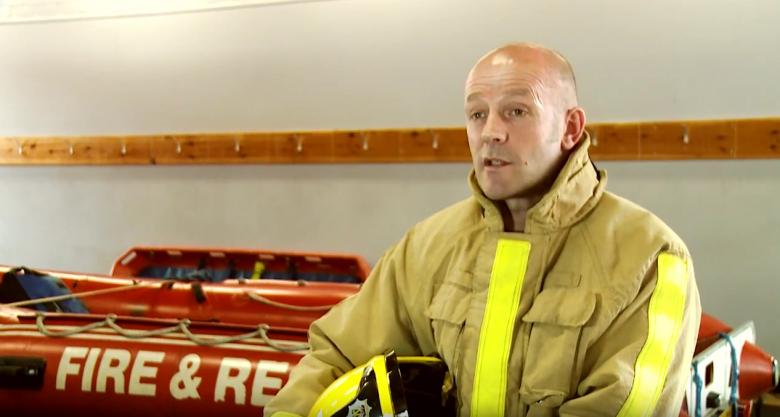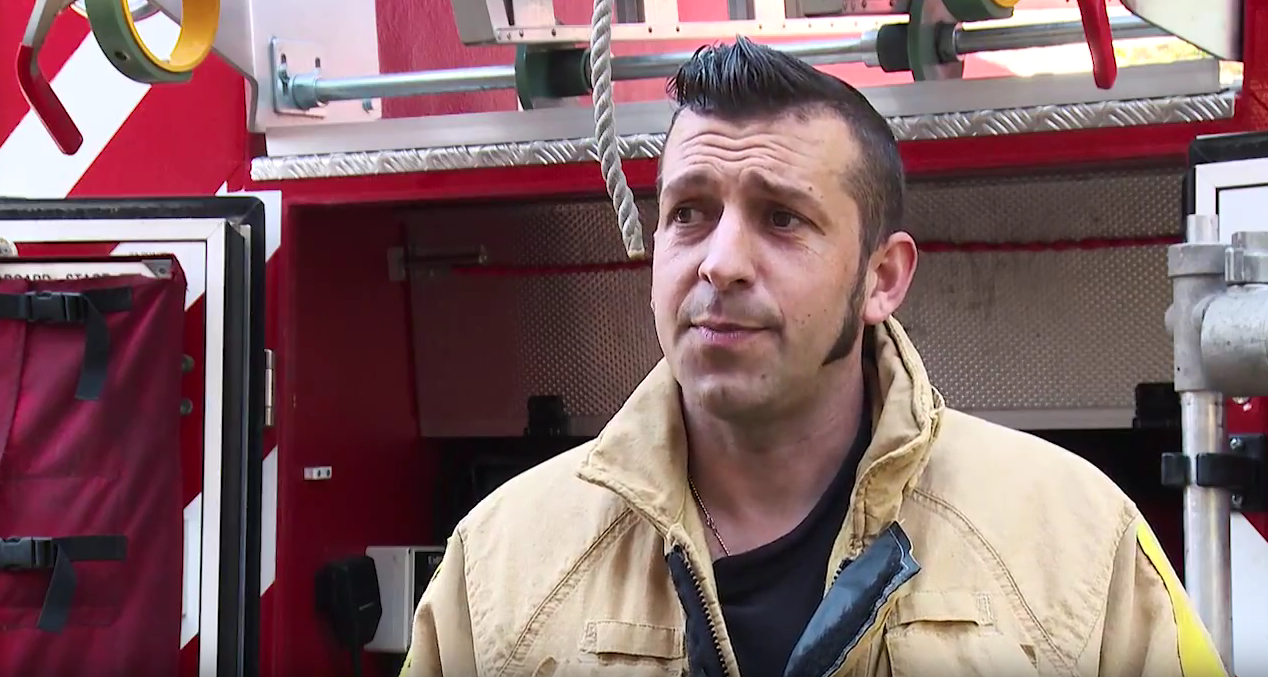
Shropshire Fire and Rescue Service has made a film about dyslexia to raise awareness and encourage staff to get assessed if they think they may have it.
With a higher ratio of employees with dyslexia, the county’s fire and rescue service is one of only a few public sector organisations to run a special support programme acclaimed for changing the lives of staff.
Their campaign began almost a decade ago after finding they attracted people able to problem solve, innovate, with heightened visual skills, leadership qualities who could see “the big picture” – skills often associated with dyslexia.
But some also have difficulties with organising paperwork, form filling, forgetting things and timed exams.
Firefighters and fire officers, office workers and the former brigade chaplain talk about how their lives have now changed for the better in the 20 minute film made by professional volunteers.
Many were labelled “not bright” during their school years when the opposite was true.
Rev Murray McBride, who gained a theology degree despite difficulty with words and numbers, told how his bad spelling was put on the classroom blackboard every week.
“It was not good for my self confidence,” said the former Shrewsbury vicar, who began working life on a farm.
Others spoke how coloured overlays and precision tinted glasses help them to read. But the boost in self confidence was the overall reaction from everyone who found out they had dyslexia, most in middle age, and had since received help from their fire service employer to go for further education and promotion opportunities.
On call firefighter and former tree surgeon Luke Veal (pictured) said firefighting catered for people with dyslexia who “think on their feet” and work “outside the box.”
He had been given the confidence to “go back to school” to do GCSEs to achieve his aim of being a wholetime firefighter.
“I now know it’s not my fault and I can be more and better than I am. I want to be the best firefighter.”
Former Minsterley firefighter Robert Griffiths (26) said he had been helped to re-take GCSEs, access a college education and was now taking a university degree in paramedic science.
Business Fire Safety Manager Cameron Taylor, who wears green precision tinted glasses to help read paper and online documents, said he had been due to go to the doctor’s as he was worried about his “terrible” memory when he saw a poster in the canteen at Shrewsbury fire HQ. Four weeks later he was diagnosed with mild dyslexia.
Firefighter and Shrewsbury control room operator Russ D’Arcy said: “I realised when I was younger I wasn’t quite the same as my peers. Unfortunately when I was at school you were lazy and naughty.
“I joined the fire service, hid it and worked around it. I would never have had the confidence to do this job before having help and support from the brigade. Form filling was something I always shied away from.”
Neil Grady, (pictured) who has just retired from the Shrewsbury station after a 30 year firefighting career, said he read a poster at work detailing symptoms which “sounded familiar” such as going upstairs and forgetting what he wanted to do.
“I had no idea I was dyslexic. I found out just before my 50th birthday,” said Neil, whose note taking skills had now improved.
He encouraged more people to come forward as dyslexia affected people in many different ways. But with working lives involving computers, email, passwords and log ons, it was important to get tested, he said.
The Dyslexic Dyslexia consultant Elizabeth Wilkinson said it was important for people to take “the brave step” to find out if they are dyslexic so that they can learn how it affects them.
“It is such a worthwhile step to take. You get support, get to reach your potential and do the things you thought you may never get to do.”
The brigade’s equality and diversity spokesperson said the fire and rescue service got back “far more” by investing in their staff in this way.
Staff diagnosed with dyslexia are encouraged to go for promotion with access to course information in advance, and where appropriate, are given extra time for exams.
More than 70 staff out of 500 employees across the county’s 23 fire stations have been given support over the past nine years.
An estimated 10 per cent of the UK population has dyslexia.
The film can be viewed: https://drive.google.com/file/d/0B5gQEWql8D2ycDk1NXk1NGZ6dTg/view





